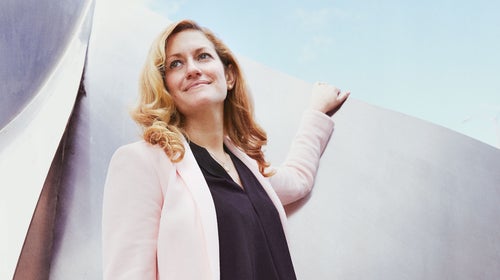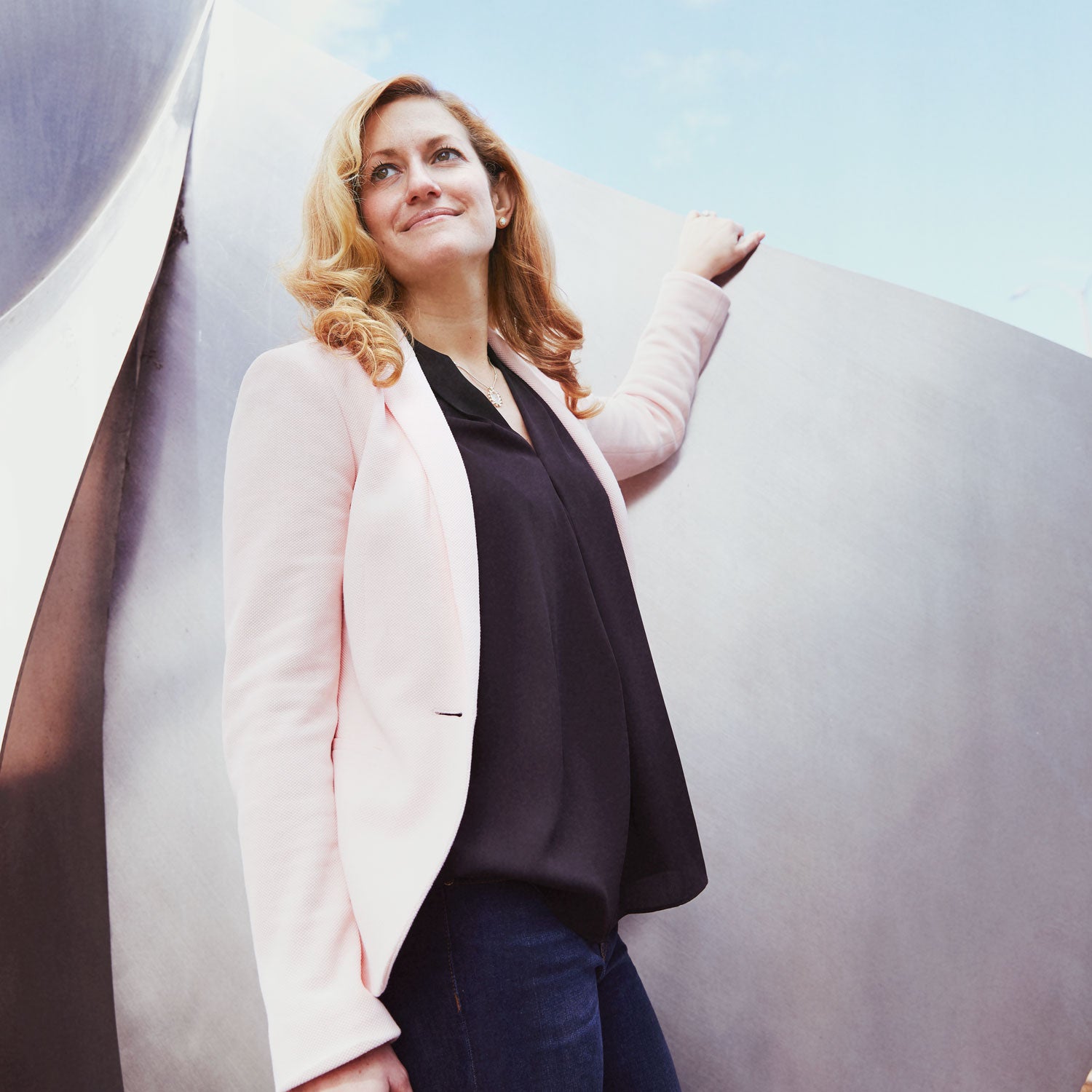Kate Brandt has always been an overachiever. Two-sport athlete. Voted most likely to succeed in high school. An Ivy League graduate. So it’s not surprising that at 33 she’s now charged with turning Google into the world leader in environmental practices. No big deal. Especially when you consider that her previous employer was Barack Obama.
Early on a busy Monday morning in March, at Google headquarters in Mountain View, California, Brandt is already bouncing from one meeting to the next. Most days she’s on her computer by 7 a.m. while riding the company’s shuttle to work. Today she’s plugging away at a new Google initiative to build cities based on the model of , a concept that aims to eliminate waste and pollution by emphasizing renewable materials and design.
“We feel an incredible sense of urgency,” Brandt says. “We’re at a critical point globally on climate and have important work to do.” Google’s current goal? Develop a strategy across the entire company—from data centers to office buildings—to use fewer resources and have a smaller environmental impact. It’s Brandt’s job to create the blueprint.
The only child of two earth-loving psychologists, Brandt was raised in the sleepy California coastal town of Muir Beach, north of San Francisco. She learned to ski in Tahoe, hiked the Sierra Nevada, and spent weekends with her parents at a Marin County Zen center. Her playgrounds were tide pools and redwood forests. “From the beginning, I had this deep appreciation and love for being outside,” says Brandt. “I grew up in one of the most beautiful places, but I remember when land would get developed into tract homes. I had this early realization of how important it is to preserve the special places we have left.”
“Nobody thought these things were possible,” says former Navy secretary Ray Mabus. “But Kate was good at coming up with new ideas and was willing to try implementing them, against sometimes entrenched opposition and bureaucracy.”
After graduating from Brown University in 2007, where she studied international relations and helped lead an effort to improve the campus’s sustainability, she earned a master’s degree from the University of Cambridge as a Gates Cambridge Scholar. After that she joined the 2008 Obama campaign in Florida, where she worked seven days a week in Tampa as a deputy director focused on women voters. Less than a week after the election, she moved to Washington, D.C., with the hope of securing a job on Obama’s transition team. It proved to be a smart move. Carol Browner, the president’s energy and climate czar, eventually offered Brandt an analyst role. She was 24.
Brandt moved quickly up the ranks: Energy adviser to Navy secretary Ray Mabus. Director of energy and environment in the White House Office of Presidential Personnel. Senior adviser at the Department of Energy. At that first stop she helped set aggressive goals, including a commitment to have the Navy’s entire fleet running on 50 percent clean energy by 2020 and advancing the use of biofuels in ships and planes. “Nobody in the Navy thought these things were possible,” says Mabus. “But Kate was good at coming up with new ideas and was willing to try implementing them, against sometimes entrenched opposition and bureaucracy.”
In 2015, Obama named Brandt the country’s first chief sustainability officer. Her mandate: reduce the footprint of the federal government’s 360,000 buildings and 650,000 vehicles. At the White House, she helped create an executive order instructing federal agencies to cut greenhouse-gas emissions by 40 percent over the next decade—saving taxpayers up to $18 billion in energy costs. President Trump has yet to rescind the Obama-era order, and its regulations still apply. That same year, Google quietly snatched Brandt from the White House, luring her back to California. “In my time in government, I came to see that, in trying to solve these incredibly broad, systemic challenges like energy and climate, partnerships between the public and private sectors were key,” Brandt says. “My goal is to work on these issues in places where I can have the most impact.”
Google already had a reputation as a green innovator. The company committed to carbon neutrality in 2007 and was on its way to becoming the world’s largest buyer of renewable energy outside of utility companies. On Brandt’s first day on the job, Google signed the , which she helped promote while in the White House as a way for companies to show support for climate policy and cutting emissions. By 2017, Google was offsetting 100 percent of its energy consumption, including 15 data centers on four continents and the offices of nearly 74,000 employees.
For the tech industry, reining in the impact of data centers is key. In Google’s case, those huge technology hubs are what support 100 billion searches a month, more than a billion Gmail users, and 500 hours of YouTube videos uploaded per minute. They also consume scary amounts of energy. Researchers estimate that data centers industry-wide could represent 13 percent of the world’s electricity use by 2030.
Which is why leadership is key. To support its initiatives, Google has purchased nearly three times as much green energy as fellow tech giants Amazon and Microsoft—and five times as much as Facebook. The company has also led the way on efficiency. “Google’s data centers are the heart of our company,” says Brandt. “Compared with five years ago, we now deliver more than three and a half times as much computing power with the same amount of electrical power.”
Reading about all of Google’s environmental initiatives can be overwhelming, and Brandt has her hand in almost everything. Over the past five years, the company has launched programs like , which allows homeowners to see if their house is a candidate for solar energy, and , which attached methane sensors to Google’s Street View vehicles to map leaks from natural-gas pipelines. To maintain some work-life balance, Brandt fiercely guards her weekends. Come Friday, she’s usually going sailing or mountain biking or skiing. “I have to have that time outside,” she says. “That’s what recharges me and enables me to do everything I do.”


